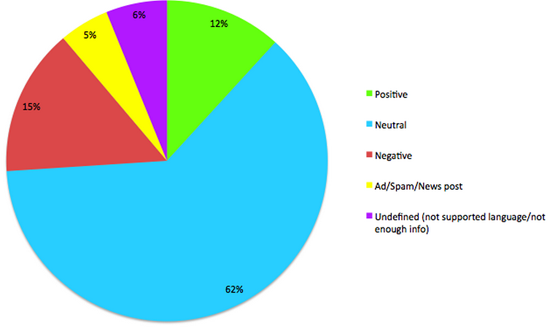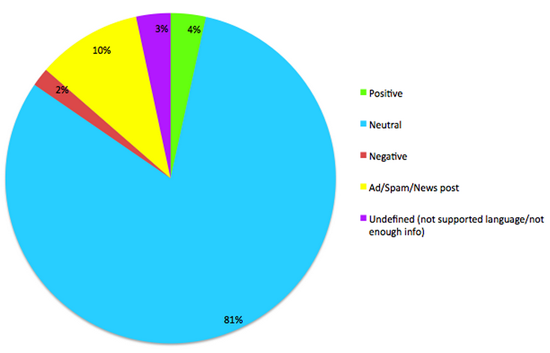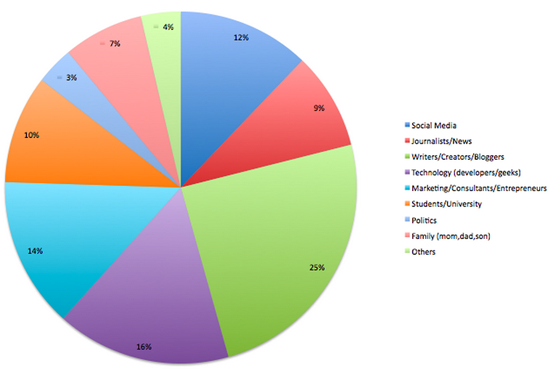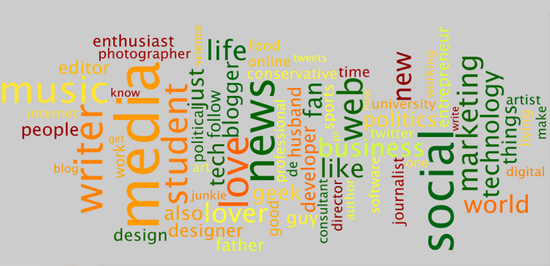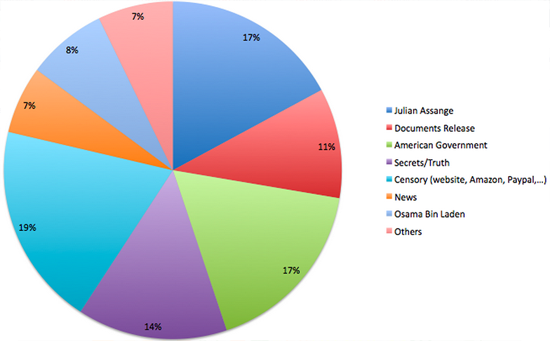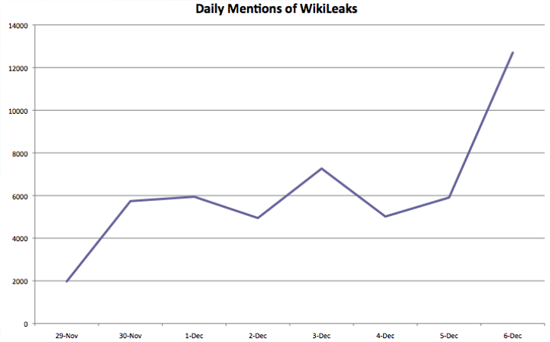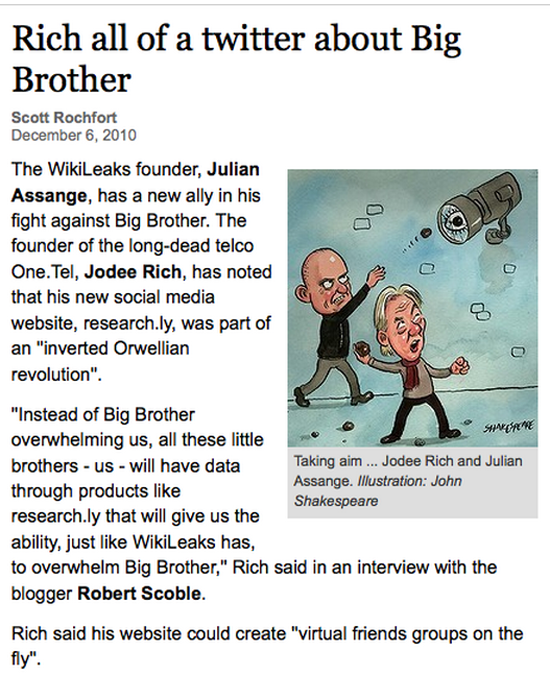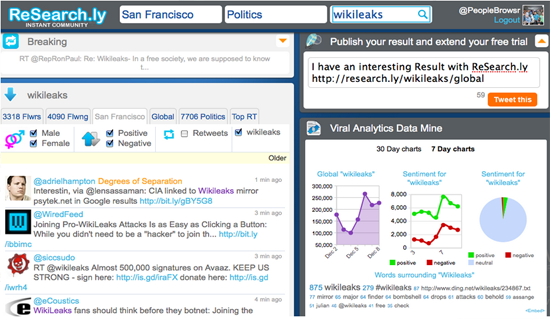The dichotomy of data lies between the freedom and control of information. As individuals, we’re concerned about privacy, yet we fight for transparency. We worry about Big Brother tracking our every movement but in truth, there is not one central governing body. We’re in the midst of an Inverted Orwellian Revolution, in which we curate our own realities by choosing to participate in online communities.
This year marks a critical awakening in the shift of power between those who produce information, those who obtain it, and those who share it. With real-time social media, we are rethinking the flow of information between individual actors, influencers, journalists, governments, and corporations. The recent events surrounding WikiLeaks heightens our awareness of how culture is shaping on the digital frontier. As pioneers in the field of data analytics, we’ve been watching this story through the lens of social research.
From November 29th to December 6th, we extracted all mentions of #WikiLeaks on Twitter to gain a better understanding of the conversation climate on the social web. We wanted to gain insight into how communities were forming groups based on shared beliefs, and the general sentiment surrounding news events. In total, we found 49, 484 mentions of WikiLeaks on Twitter, over a period of 8 days.
On the fist day of coverage, negative sentiment was noticeably higher than on the final day. Most conversation was classified as neutral, indicating that most tweets were objective, with news being shared more than personal opinion. Towards the end of the period, both positive and negative sentiment recessed into neutral territory.
Here are specific findings from our data:Charting the first 3 days, with negative sentiment higher than positive, and most of the conversation resting in neutral.
Charting the last 3 days, with sentiment largely marked as neutral.
Our sentiment analysis includes human analysis and mechanical turking. Current industry standards assume that sentiment analysis is approximately 70% accurate. We participate in improved machine learning through involving human participation. Here are examples of Tweets that we classify as positive, negative or neutral, based on views supporting WikiLeaks.
Neutral:
“RT @TechCrunch: Does Wikileaks Represent The End Of Internet History? http://tcrn.ch/gS2sfr”
“RT @STWuk: Amazon pulled it, Paypal blocked it, hackers took it down, Obama banned it, but #Wikileaks is still here: http://213.251.145.96/”
“I'm not real wild about WikiLeaks. I am all for openness but it can go too far. Do we want all of our conversations in public?”
“Okay, who stuck the wikileaks mirror list on etherpad.mozilla.org? Poor thing wasn't built for that, I don't think. http://bit.ly/gEnsDB”
Positive:
“Keep freedom alive! Plenty of @wikileaks mirror sites: http://www.twitlonger.com/show/79s9r1”“I support @WikiLeaks and Julian Assange. If you do too, add a #twibbon to your avatar now! http://twb.ly/h3h10U #cablegate #wikileaks”
“RT @NathanMaggiore: @wikileaks I love you. Don't ever stop.”
“Looks like there's a growing movement to mirror wikileaks in support of free speech and defiance of governments and banks #imwikileaks”
Negative:
“Wikileaks is pissing me off. Shame on him for assuming his right to info supersedes others safety. That's unAmerican.”
“Some things should remain confidential. Sorry #WikiLeaks, I don't agree with your tactics.”
“WikiLeaks should be closed down.”
“I'm all for exposing govt secrets; I've exposed a few myself. But Wikileaks says publish every cable, even about nuclear strategy.”
In analyzing the bios of Twitter users speaking on topics surrounding WikiLeaks, we saw that people were bonding on shared opinions, regardless of their profession or background. This is how we bring new subset communities together: By recognizing that social interaction is moving from the social connections graph to the Interest Graph.
Word Cloud of Twitter BiosMost Frequently Used Words Associated with WikiLeaks TweetsIncreased daily mentions of WikiLeaks surrounding breaking news over the 8 day period
At PeopleBrowsr, we seek to understand how humans are evolving to a higher level of collective consciousness. We analyze data to connect the dots between subset groups and niche communities on the social web. We aim to make it easier for people to communicate, and to locate others with similar interests. We’re actors in the play of power moving from Big Brother and large single entities to individual communities and ‘little brother’ subset groups.
Recently, an article was published exposing our beliefs on how the social web is transferring power from one Big Brother to many Little Brothers. Jodee Rich, Founder and CEO of PeopleBrowsr, is a strong supporter of the information paradigm shift.
As players in the data revolution, we actively participate in discovering ways in which an Inverted Orwellian Revolution is occurring. We believe in the power of data, and the ability to create networks based on personal preference and common belief systems. In the information economy, individuals gain control of the information they digest and the communities they choose to support. Information is not pushed; it’s pulled. The power lies in listening to what people are saying, and gaining context for insights and support.
Last week, we launched ReSearch.ly, a social search platform that has the ability to create instant communities on the fly from conversational context. It is the next generation in understanding the ‘big picture’ of social impressions across relational interest graphs, and adds to the progression of current social research technology.
Here’s an example of a search for WikiLeaks on ReSearch.ly, with a live Twitter stream of all Tweets surrounding WikiLeaks being discussed by people in San Francisco who’ve identified themselves as Political in their bios:
* For more examples, deep dive into search to find any community discussing WikiLeaks in real-time: http://research.ly/wikileaks/global/Politics
We invite you to explore our views of the Inverted Orwellian Revolution, and how our brand and products promote the freedom of information and democratic process through enterprise innovation. We want to hear what the public is saying, and we find better ways of listening through data analytics. We believe in transparency, and in sharing information in a way that promotes the common good.
As the WikiLeaks story continues to evolve, we’ll be following the viral analytics of breaking news, Retweet analysis, and overall sentiment. And we’d love to know what you think: What’s your sentiment on WikiLeaks?
Tweet Us to join the conversation @PeopleBrowsr
About PeopleBrowsr
PeopleBrowsr is a technology company which provides enterprise, government and Top Level Domain owners with the ability to launch their own social networks and analyze and engage the members of those networks.
